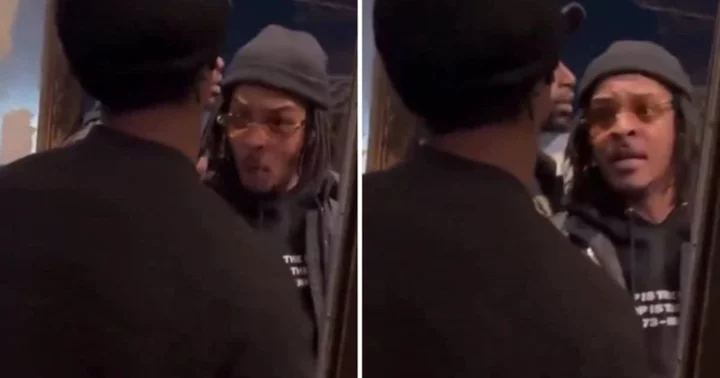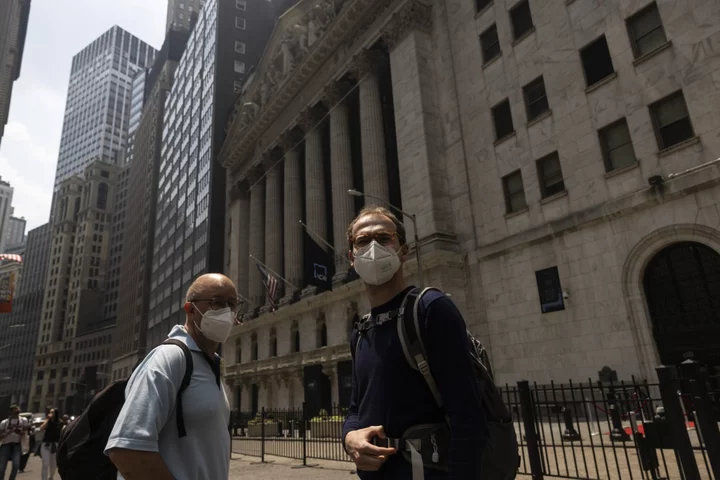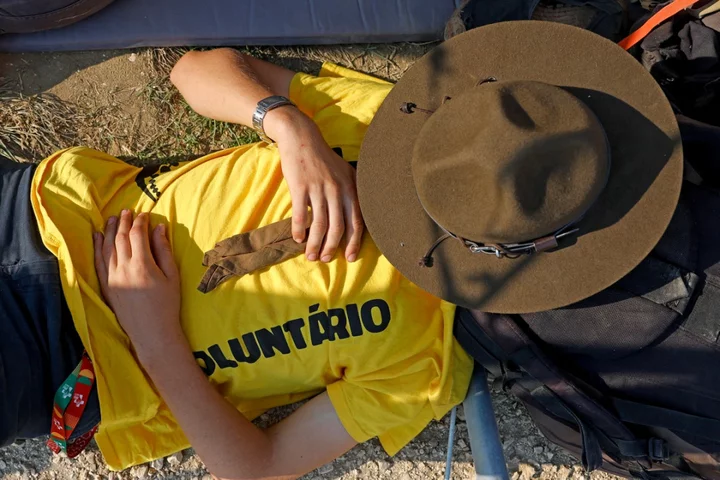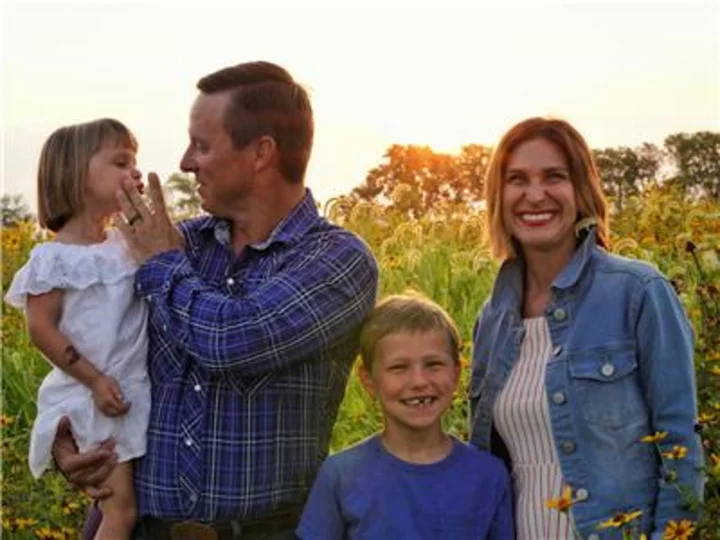Francesca Williams moved her family to Ecuador to build her ‘Shangri-La’. She was shot dead protecting them
In 2014, Francesca Williams moved her family from Colorado to a remote valley in Ecuador famous for the longevity of its residents to pursue their dream of building their version of “Shangri-La”. She and her husband Michael paid about $10,000 for a 10-acre plot of land on the side of a mountain just outside Vilcabamba to raise chickens, goats, horses, pigs, ducks and guinea fowl on a sustainable farm with their three daughters. It was a life they never could have afforded in the United States, but after years of hard work was starting to come to fruition, Francesca’s mother Marianna Benedict-Bacilla, 61, told The Independent in an interview. Francesca, a gifted artist, linguist, translator and published children’s author, threw her boundless energy into making the farm a success, Ms Benedict-Bacilla said. When Michael would travel back to the US for work, Francesca would remain in Ecuador with their three teenage daughters Rachel, 19, Renee 17, and Rebekah, 14, and her elderly father John to tend to the animals and plant crops. On 20 May, that idyllic life was shattered when at least four men armed with rifles burst onto the farm and shot Francesca dead. The attack was sudden, and extremely violent. The men knocked out Michael before he even realised they were on the property, and stabbed Williams’ elderly and infirm father John when he tried to intervene. Ms Benedict-Bacilla said Francesca had been hanging out the washing when she saw the assailants attack her father, and rushed to help him. “Francesca gave her life trying to save her father’s,” Ms Benedict-Bacilla told The Independent. “My daughter was petite, but she guarded her family ferociously. She always knew if there was ever a problem, nothing would get in the way.” Rachel, their middle daughter, told Colorado news site KDVR in an interview last week that she had seen her mother “scrambling after” a man trying to fight him off. Then she saw “two sparks of a gun” as the assailant fired at her mother. Her older sister ran to a neighbour’s for help. The stick up crew tied up Michael, John, and two of the daughters, and locked them in separate rooms throughout the house before making off with wallets, iPads and computers. “It was horrendous. They were essentially hostages in their own home,” Ms Benedict-Basilla said. Rachel recalled hearing the men asking in Spanish for the “large aunt”, and thought they might have targeted their home by mistake. It was only when Michael managed to untie his hands about an hour later that he found his wife’s body, Ms Benedict-Bacilla told The Independent. He put the family in their vehicle, and raced to an emergency medical centre. Michael and John received medical attention in a hospital, while the daughters were unharmed. “We were very humble people, we don’t understand why we were targeted,” Michael told San Diego’s KGTV. Francesca’s death has torn open the family’s generational trauma from the 1967 unsolved murder of her aunt Nikki Benedict who was stabbed to death walking home from school aged 14, Ms Benedict-Basilla said. ‘Everything was taken from them’ Three years before her death, Francesca Williams had written of her fears of home invasion and violent crime in her adopted home on the knowledge-sharing website Quora. Asked about Ecuadorean stereotypes, Williams said she had been told of the high risk of robberies prior to moving there. “We have not experienced this as of yet, but live in constant awareness of this danger,” she said. “I know many, many foreigners who have experienced home invasion robberies and I would not have come here if I had any idea of how close to home such attacks would be. It is essential that one have intimidating dogs and bars on one’s windows.” Ms Benedict-Basilla told The Independent the family had been especially on edge after an expat neighbour was shot dead trying to repel a home invasion. The gunmen’s modus operandi in that case was eerily similar to the attack that killed Francesca, she said. The homeowner had confronted a group of assailants as they tried to break in, and was shot dead. Ms Benedict-Basilla believes they could be the same group that targeted her family. The family are holding out hope of finding justice for Francesca, but say not enough is being done to make the town safe for the vibrant community of artists and retirees who have made it their home. “The government isn’t putting any effort into investigating the things that happen there,” she told The Independent. She said the local police were doing their best. “But they don’t give them the resources that they need and these murders aren’t being investigated.” No suspects have been identified in either killing. The local Vilcabamba police force was doing what it could, she said, but without the support of the Ecuadorean National Police there seemed to be little chance of finding the killers. The Policía Nacional del Ecuador did not respond to numerous requests for comment about the investigation. It has barely received any mention in the Ecuadorean press. In a statement, a US State Department spokesperson told The Independent: “We offer our sincerest condolences to the family on their loss. “We are in contact with the family and are providing all appropriate consular assistance. “We refer you to the government of Ecuador for information regarding any local investigation.” State Department figures show 15 US citizens were murdered in Ecuador between 2010 and June 2022, but it’s unclear if those figures capture recent attacks around Vilcabamba. Francesca’s family have taken little comfort from the Ecuadorean authorities’ response, and will not be returning, Ms Benedict-Basilla said. “Everything was taken from them.” ‘The Valley of Longevity’ In expat forums, adopted residents have spoken out about the “impotence” of the local police force to combat a rising tide of rape, home invasion and murder against the foreigners who have made Vilcabamba their home. In response, local expat communities have formed neighbourhood security groups, and any disturbances are quickly shared through WhatsApp groups. The town, situated in the lower Ecuadorean Andes near the border with Peru, gained worldwide attention in the 1970s, when Harvard professor Alexander Leaf travelled there to report on claims that residents were living to the age of 130 for National Geographic. The subtropical valley’s year-round spring climate, crystal-clear water, pollution-free air and abundance of produce supposedly supposedly allowed the male residents to continue to carry out manual labour and conceive children until well past 100. The area, known as The Valley of Longevity, became inundated with gerontologists who wanted to know more about how that delicate balance of good genes and healthy natural environment was prolonging lives. They later grew sceptical about some of the residents’ claims when they were unable to produce credible birth records. But that didn’t stop a large number of expats moving there to buy property over the years, gentrifying the area, and sometimes bringing them into conflict with the locals who still worked the fields for a few hundred dollars per month. By 2007, that global fame was harming Vilcabamba’s local community, according to a Reuters report. “These days, the famous elders of Vilcabamba are dying at a younger age, the result of the stresses of modern life brought by the scores of tourists and health buffs who flock here in search of eternal youth,” Reuters wrote. ‘Generational trauma’ In May 1967, Ms Benedict-Bacilla’s sister Nikki Benedict was stabbed to death while she walked home from her friend’s house in Poway, near San Diego, aged just 14. She suffered knife wounds to the neck and chest in the brazen daylight attack and was found bleeding to death in a field. The murder has never been solved. Their mother had been the editor of the local newspaper at the time, and had to write an article about her own daughter’s death, Ms Benedict-Bacilla told The Independent. Ms Benedict-Basilla was five at the time, and the tragedy, and lack of answers about what had happened defined her childhood, she said. “It was all I ever knew,” she said. “We’ve had so much family tragedy. You don’t heal, you just get stronger.” Ms Benedict-Bacilla runs a Facebook group dedicated to finding her sister’s killer, and speaks out every anniversary of her death to keep focus on solving the heinous killing. As a way of dealing with her own psychological wounds, Ms Benedict-Bacilla became a specialist in trauma intervention and volunteers for the American Red Cross and the Poway Community Emergency Response Team. She likens the kind of generational trauma that her family suffered after Nikki’s murder to a “cancer” that can never fully heal, but can only be managed through finding strength in keeping their loved ones memory alive. She had seen Francesca grow up in the shadow of that trauma, and took comfort from the fact that her granddaughters would be one generation removed from it. “They stole (Francesca’s) future, and they stole her children’s future. It will be part of them now because that’s how generational trauma works,” she told The Independent. ‘A quest for knowledge’ Francesca Williams excelled at anything she turned her hand to, Ms Benedict-Basilla told The Independent. “She was an extraordinarily gifted person, just mega-smart,” Ms Benedict-Basilla said. Coming from four generations of journalists and editors, Francesca Williams wanted to be a writer from an early age, her mother said. But when it was time to choose a major, she opted to study linguistics at the University of California, San Diego. She was fluent in French and Lithuanian, her great-grandmother’s home tongue. She had known her husband Michael since they were children, and decided to move from Poway to Kommerling, Colorado, when the cost of living in California became too high. Francesca hadn’t known Spanish prior to moving to Ecuador, and within a year she was fluent and carrying out legal transcriptions, her mother said. She had also recently published her first illustrated children’s book, The King’s Magic, and was a brilliant artist on “any medium”, her mother says. “Anything she touched she turned into beautiful art. A lot of people who are that bright can get into trouble in life, she put it all into a quest for knowledge.” Francesca’s body was returned to the US last week, but the family are still trying to get their beloved Corgi Banksy home. Her funeral was held in Colorado on Saturday 3 June. A GoFundme page has been set up to help the family. Read More American expat shot dead on her ‘Shangri-La’ off-the-grid farm in Ecuador Ecuador's president declines to run in snap elections after he disbands National Assembly Funeral held for teen shot by gas station owner over false shoplifting claims as community shares outrage
In 2014, Francesca Williams moved her family from Colorado to a remote valley in Ecuador famous for the longevity of its residents to pursue their dream of building their version of “Shangri-La”.
She and her husband Michael paid about $10,000 for a 10-acre plot of land on the side of a mountain just outside Vilcabamba to raise chickens, goats, horses, pigs, ducks and guinea fowl on a sustainable farm with their three daughters.
It was a life they never could have afforded in the United States, but after years of hard work was starting to come to fruition, Francesca’s mother Marianna Benedict-Bacilla, 61, told The Independent in an interview.
Francesca, a gifted artist, linguist, translator and published children’s author, threw her boundless energy into making the farm a success, Ms Benedict-Bacilla said.
When Michael would travel back to the US for work, Francesca would remain in Ecuador with their three teenage daughters Rachel, 19, Renee 17, and Rebekah, 14, and her elderly father John to tend to the animals and plant crops.
On 20 May, that idyllic life was shattered when at least four men armed with rifles burst onto the farm and shot Francesca dead.
The attack was sudden, and extremely violent. The men knocked out Michael before he even realised they were on the property, and stabbed Williams’ elderly and infirm father John when he tried to intervene.
Ms Benedict-Bacilla said Francesca had been hanging out the washing when she saw the assailants attack her father, and rushed to help him.
“Francesca gave her life trying to save her father’s,” Ms Benedict-Bacilla told The Independent.
“My daughter was petite, but she guarded her family ferociously. She always knew if there was ever a problem, nothing would get in the way.”
Rachel, their middle daughter, told Colorado news site KDVR in an interview last week that she had seen her mother “scrambling after” a man trying to fight him off.
Then she saw “two sparks of a gun” as the assailant fired at her mother. Her older sister ran to a neighbour’s for help.
The stick up crew tied up Michael, John, and two of the daughters, and locked them in separate rooms throughout the house before making off with wallets, iPads and computers.
“It was horrendous. They were essentially hostages in their own home,” Ms Benedict-Basilla said.
Rachel recalled hearing the men asking in Spanish for the “large aunt”, and thought they might have targeted their home by mistake.
It was only when Michael managed to untie his hands about an hour later that he found his wife’s body, Ms Benedict-Bacilla told The Independent.
He put the family in their vehicle, and raced to an emergency medical centre. Michael and John received medical attention in a hospital, while the daughters were unharmed.
“We were very humble people, we don’t understand why we were targeted,” Michael told San Diego’s KGTV.
Francesca’s death has torn open the family’s generational trauma from the 1967 unsolved murder of her aunt Nikki Benedict who was stabbed to death walking home from school aged 14, Ms Benedict-Basilla said.
‘Everything was taken from them’
Three years before her death, Francesca Williams had written of her fears of home invasion and violent crime in her adopted home on the knowledge-sharing website Quora.
Asked about Ecuadorean stereotypes, Williams said she had been told of the high risk of robberies prior to moving there.
“We have not experienced this as of yet, but live in constant awareness of this danger,” she said.
“I know many, many foreigners who have experienced home invasion robberies and I would not have come here if I had any idea of how close to home such attacks would be. It is essential that one have intimidating dogs and bars on one’s windows.”
Ms Benedict-Basilla told The Independent the family had been especially on edge after an expat neighbour was shot dead trying to repel a home invasion.
The gunmen’s modus operandi in that case was eerily similar to the attack that killed Francesca, she said.
The homeowner had confronted a group of assailants as they tried to break in, and was shot dead. Ms Benedict-Basilla believes they could be the same group that targeted her family.
The family are holding out hope of finding justice for Francesca, but say not enough is being done to make the town safe for the vibrant community of artists and retirees who have made it their home.
“The government isn’t putting any effort into investigating the things that happen there,” she told The Independent.
She said the local police were doing their best. “But they don’t give them the resources that they need and these murders aren’t being investigated.”
No suspects have been identified in either killing. The local Vilcabamba police force was doing what it could, she said, but without the support of the Ecuadorean National Police there seemed to be little chance of finding the killers.
The Policía Nacional del Ecuador did not respond to numerous requests for comment about the investigation. It has barely received any mention in the Ecuadorean press.
In a statement, a US State Department spokesperson told The Independent: “We offer our sincerest condolences to the family on their loss.
“We are in contact with the family and are providing all appropriate consular assistance.
“We refer you to the government of Ecuador for information regarding any local investigation.”
State Department figures show 15 US citizens were murdered in Ecuador between 2010 and June 2022, but it’s unclear if those figures capture recent attacks around Vilcabamba.
Francesca’s family have taken little comfort from the Ecuadorean authorities’ response, and will not be returning, Ms Benedict-Basilla said.
“Everything was taken from them.”
‘The Valley of Longevity’
In expat forums, adopted residents have spoken out about the “impotence” of the local police force to combat a rising tide of rape, home invasion and murder against the foreigners who have made Vilcabamba their home.
In response, local expat communities have formed neighbourhood security groups, and any disturbances are quickly shared through WhatsApp groups.
The town, situated in the lower Ecuadorean Andes near the border with Peru, gained worldwide attention in the 1970s, when Harvard professor Alexander Leaf travelled there to report on claims that residents were living to the age of 130 for National Geographic.
The subtropical valley’s year-round spring climate, crystal-clear water, pollution-free air and abundance of produce supposedly supposedly allowed the male residents to continue to carry out manual labour and conceive children until well past 100.
The area, known as The Valley of Longevity, became inundated with gerontologists who wanted to know more about how that delicate balance of good genes and healthy natural environment was prolonging lives.
They later grew sceptical about some of the residents’ claims when they were unable to produce credible birth records.
But that didn’t stop a large number of expats moving there to buy property over the years, gentrifying the area, and sometimes bringing them into conflict with the locals who still worked the fields for a few hundred dollars per month.
By 2007, that global fame was harming Vilcabamba’s local community, according to a Reuters report.
“These days, the famous elders of Vilcabamba are dying at a younger age, the result of the stresses of modern life brought by the scores of tourists and health buffs who flock here in search of eternal youth,” Reuters wrote.
‘Generational trauma’
In May 1967, Ms Benedict-Bacilla’s sister Nikki Benedict was stabbed to death while she walked home from her friend’s house in Poway, near San Diego, aged just 14.
She suffered knife wounds to the neck and chest in the brazen daylight attack and was found bleeding to death in a field. The murder has never been solved.
Their mother had been the editor of the local newspaper at the time, and had to write an article about her own daughter’s death, Ms Benedict-Bacilla told The Independent.
Ms Benedict-Basilla was five at the time, and the tragedy, and lack of answers about what had happened defined her childhood, she said.
“It was all I ever knew,” she said. “We’ve had so much family tragedy. You don’t heal, you just get stronger.”
Ms Benedict-Bacilla runs a Facebook group dedicated to finding her sister’s killer, and speaks out every anniversary of her death to keep focus on solving the heinous killing.
As a way of dealing with her own psychological wounds, Ms Benedict-Bacilla became a specialist in trauma intervention and volunteers for the American Red Cross and the Poway Community Emergency Response Team.
She likens the kind of generational trauma that her family suffered after Nikki’s murder to a “cancer” that can never fully heal, but can only be managed through finding strength in keeping their loved ones memory alive.
She had seen Francesca grow up in the shadow of that trauma, and took comfort from the fact that her granddaughters would be one generation removed from it.
“They stole (Francesca’s) future, and they stole her children’s future. It will be part of them now because that’s how generational trauma works,” she told The Independent.
‘A quest for knowledge’
Francesca Williams excelled at anything she turned her hand to, Ms Benedict-Basilla told The Independent.
“She was an extraordinarily gifted person, just mega-smart,” Ms Benedict-Basilla said.
Coming from four generations of journalists and editors, Francesca Williams wanted to be a writer from an early age, her mother said.
But when it was time to choose a major, she opted to study linguistics at the University of California, San Diego. She was fluent in French and Lithuanian, her great-grandmother’s home tongue.
She had known her husband Michael since they were children, and decided to move from Poway to Kommerling, Colorado, when the cost of living in California became too high.
Francesca hadn’t known Spanish prior to moving to Ecuador, and within a year she was fluent and carrying out legal transcriptions, her mother said.
She had also recently published her first illustrated children’s book, The King’s Magic, and was a brilliant artist on “any medium”, her mother says.
“Anything she touched she turned into beautiful art. A lot of people who are that bright can get into trouble in life, she put it all into a quest for knowledge.”
Francesca’s body was returned to the US last week, but the family are still trying to get their beloved Corgi Banksy home.
Her funeral was held in Colorado on Saturday 3 June. A GoFundme page has been set up to help the family.
Read More
American expat shot dead on her ‘Shangri-La’ off-the-grid farm in Ecuador
Ecuador's president declines to run in snap elections after he disbands National Assembly
Funeral held for teen shot by gas station owner over false shoplifting claims as community shares outrage









